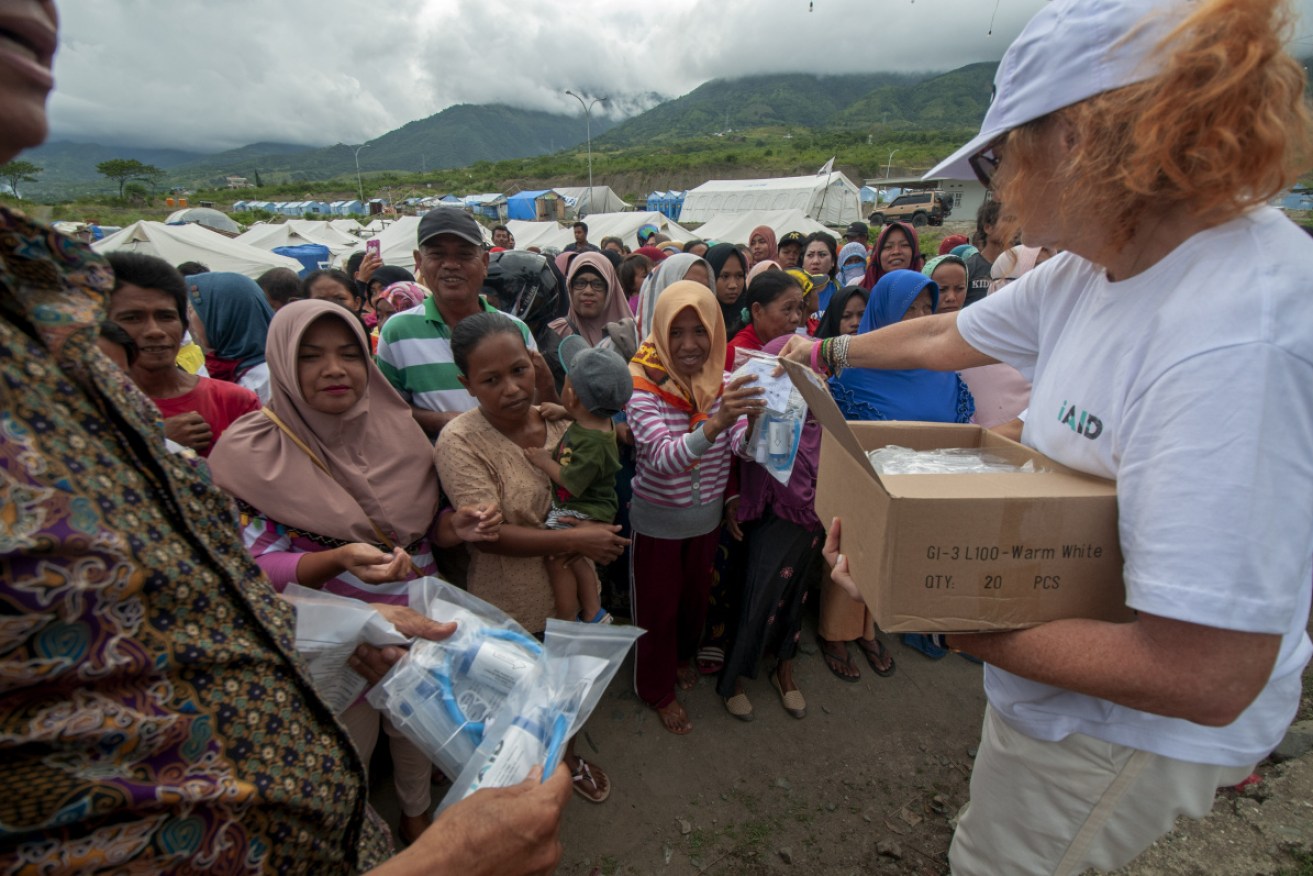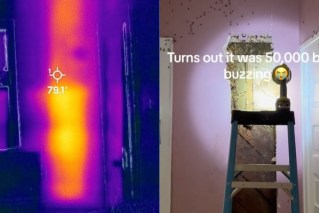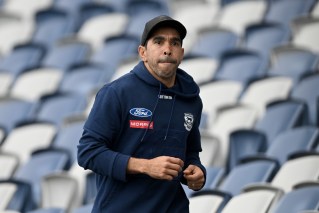From classroom to disaster zone: How aid workers learn the hardest lesson of all

More than 2000 people died when a devastating earthquake and tsunami hit the Indonesian island of Sulawesi in 2018. Photo: Getty
It’s a long way from the classroom to a disaster zone, but that’s the journey many Australian humanitarian workers take when they finish their studies and enter the workforce.
For Melbourne aid worker Rachelle Coates, her first official deployment at the age of 34, was to the Philippines a week after Typhoon Haiyan hit in 2013.
More than 6000 people had died and 4 million people had been displaced. The reality of life as an aid worker quickly became apparent.
“My first [deployment] was a very steep learning curve. It wasn’t easy, there was so much devastation, and I was doing 18 hours days for the first six weeks,” Ms Coates says.

Rachelle Coates in Chad. Photo: Supplied
“But, for me, it was the best way to learn. You get thrown in the deep end, and you can either do it or you can’t, and by the end of that period you know whether it’s something you want to do.”
But, she says, the experience – like many deployments – was also wonderful.
“I got to work with extremely experienced people and learned a lot from them. And the [Filipino] people were so positive it was also strangely encouraging. We could see the impact the programs were having. “
Since completing a master’s degree in international and community development in 2011, Ms Coates has travelled to and worked in an incredible 18 countries.
She has worked in conflict zones in Iraq and Chad, on child wellbeing programs in India, responded to devastating earthquakes in Nepal and Sulawesi, supported communities at risk of food shortages in southern Africa, and responded to refugee crises in Bangladesh and Panama.
Working with World Vision’s global rapid response team, Ms Coates was sometimes in one place for just a few weeks, before heading off to her next destination.
And while her resume reads like a choose-your-own adventure novel, she says the job calls for more than just wanderlust and a desire to do good. It also requires immense amounts of personal resilience.
Ms Coates says her postgraduate study gave her an important theoretical foundation. But the course failed to prepare students adequately for the job’s intense emotional and psychological requirements.
“Some of the higher-level thinking we learned was helpful, like approaches to development. It helps to know what questions to ask when developing a program. Is this going to work? Is it appropriate in the circumstances? And what are the long-term impacts?” she says.
“But now that I’ve done this job for a few years, I think it would be very helpful for people going in, to have more exposure to what the actual work-life is and the personal toll it takes.”
If it’s not part of their formal education, how do humanitarian workers learn the value of self-care, which has a critical role in sustaining a complex and challenging career?
“I was lucky that World Vision offers a session with a psychologist before you deploy, who gives you tips on how to build resilience and how not to burn out,” Ms Coates says.
“I had a colleague who was looking out for me and making sure I was looking after myself. But not everyone has access to that, and for them it’s more about leaning on the friends they make.”

Rachel Coates at a World Vision project in Bangladesh. Photo: Supplied
Even with the best support from her employer, the rapid response job did take its toll on Ms Coates. After four years of constant travel, she began to experience what’s often referred to in the business as ‘burn-out’.
“I was working on the Sulawesi response, and for me, it was getting no sleep and not being able to think clearly, and then I started hallucinating,” she says.
“I think it was accumulative stress from the year I’d had, because I’d been constantly moving and never home.”
Now settled in Melbourne and well-slept, Ms Coates is a portfolio lead for World Vision Australia’s emergency responses.








